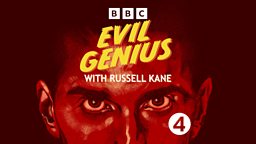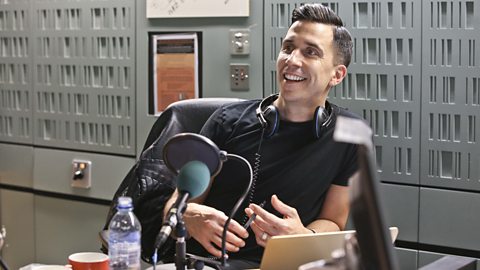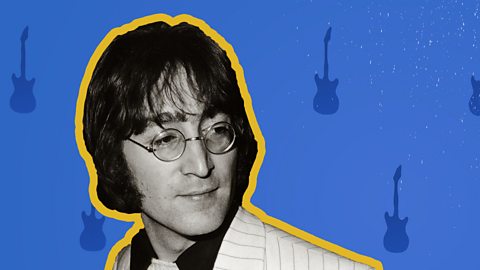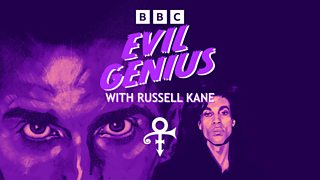The Notorious B.I.G. - rap genius, or evil criminal?
The Notorious B.I.G., aka Biggie, aka Christopher Wallace to his mum, only released one album before he was murdered in 1997, at the age of 24. Even so, he has become known as one of the greatest rappers in history, with hits including Juicy and Big Poppa. Music wasn’t his whole story, however. Once a crack dealer, Wallace spent time in jail on weapons and drug offences, and his short life was punctuated by violence.
Did his musical achievements make him an unassailable genius or do his crimes cancel that out and push him into evil? In ΒιΆΉΤΌΕΔ Radio 4 Podcast Evil Genius with Russell Kane, Russell is joined by Nathan Caton, Athena Kugblenu and Lou Sanders to debate Biggie’s rap sheet.
For: He’s the “greatest MC of all time”
It’s pretty hard to argue against Biggie’s influence on rap. In 1993, he met Sean Combs, then Puff Daddy, now Diddy, who signed him to his label, Bad Boy Records. Combs called his discovery “the greatest MC of all time”. He was successful immediately, winning Rap Artist of the Year at the 1995 Billboard Music Awards and nominated for a Grammy in 1996. Athena describes him as an “effortless” rapper. Such was his success and influence that his music continued being released posthumously, even as late as 2017. Artists who’ve featured him in their music since his death include Eminem, Jay-Z and Mariah Carey.
βIf Biggie was around today, 95% of rappers wouldnβt exist, because they wouldnβt be able to compete on his level.β
For: His rap style was pioneering
One of the things that made Biggie so special was the technical brilliance of his rapping. As Russell puts it, “Unlike most rappers, [he] ended a bar of lyrics at the beginning of the following bar. For non-musical people amongst us, that’s what’s known as f***ing difficult.” Essentially, it meant his lyrics had a continuous flow rather than the simpler rhyme scheme of most rap that came before him (Russell explains it better in the episode). Nathan says, “If Biggie was around today, 95% of rappers wouldn’t exist, because they wouldn’t be able to compete on his level.”

Against: He was a crack dealer
Biggie dropped out of school at the age of 16 to sell crack on the streets of Brooklyn. In 1991, he was put in prison for nine months. In his lyrics he said “the hustlers on the corner were my role models.” The panel debate what choices he had, but Athena insists there is never an excuse to sell drugs that ruin lives and that glamourising it is a huge problem in rap: “A lot of rappers make their initial money selling poison to their community, then they get big and brag about it. They’re just continuing the cycle…Selling crack to your people is not a positive thing…That’s definitely an issue for me.”
"Selling crack to your people is not a positive thingβ¦Thatβs definitely an issue for me.β
Against: He perpetuated stereotypes
Athena says she finds Biggie’s playing up to stereotypes to be “really problematic, because it’s unhelpful, it’s unprogressive and it’s not true.” Biggie rapped about drugs, crime and treating women violently. However, Athena argues that the blame isn’t entirely on Biggie because his stereotypical image is the one that sells. She argues that Black rappers can be any sort of person they choose to be, good or bad, but that it’s the bad that sells because too many only want the stereotype.
Against: He had a violent affair with Lil Kim
Biggie married Faith Evans in 1994 but was long rumoured to have had an affair with rapper Lil’ Kim. Many years after his death, Lil’ Kim confirmed the affair and said it was true that he had threatened her at gunpoint in a recording studio. She said in an interview, “We did have a very violent relationship.”

"It's optimism, isn't it?"
Russell Kane, Athena Kugblenu, Nathan Caton and Lou Sanders discuss the Notorious B.I.G.
For: Everyone could take something from his message
Biggie rapped about life on the street and the struggle of growing up. Russell and the panel argue that you don’t have to have lived the same life as him to take inspiration from his lyrics. “It’s optimism,” says Athena. “Where he comes from, no education, no money, a criminal. So you can listen to that, coming from any point, and say, ‘Oh I can go from A to B’. It’s inspiring.” As Lou adds, “We love all that, rags to riches.”
Against: He was dishonest about his background
Turns out the life Biggie rapped about wasn’t entirely true to his actual experience. His own mother, Valetta, disputed a lot of the content of his lyrics about his rough childhood. Biggie rapped about how “Christmas passed me by”, but Valetta insisted in an interview in The Guardian that “Christmas never missed my son.” She said that her son was “telling a story”, that many details were untrue. He didn’t grow up on the block where he sold drugs. He lived in a decent home. He went to quite a good school. He never went hungry. He created an image.
Which side will the panel come down on? Can the music be so great that it drowns out the crime? Listen to the full episode of Radio 4's Evil Genius with Russell Kane to find out.

How well do you know John Lennon?
Comedian Russell Kane shares a side of John Lennon who might not have been aware of.




